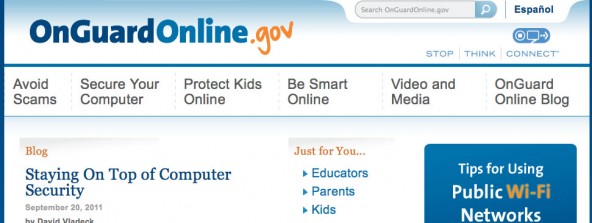|
|
|

Skeptic Summary #363
By The Staff
Posted on: 5/22/2012
|
Product abuse, unicorn abuse, dog abuse, hiring abuse, land abuse, avoiding abuse and more!
|
Week ending May 20, 2012 (Vol 9, #12)
Welcome to the Skeptic Summary, a quick week-in-review guide to the Skeptic Friends Network and the rest of the skeptical world.

Forum Highlights:Abused products - What products are not used as intended? Please give us your Q-tips.
Become a certified Unicorn Practitioner - Load up with Reiki energy as per Pegasus’ instruction.
{gasp} A dog! - How much is personal phobia for dogs, and how much is religion?
George Lucas FTW! - The new studio is taken off the table, and supports housing instead.
Editor’s Choice: Secular Coalition of America F***s Up - Not an inspiring new hire.

Kil’s Evil Pick:OnGuardOnline.gov — Last week I received in my SFN private message box a 419 Nigerian scam letter. Imagine going to all the trouble of registering at a skeptic’s site in order to pass one of those letters around to a bunch of skeptics! While I’m sure they could have found greener pastures in their attempt to find someone credulous enough to bite, apparently the Nigerian scammers still lack some sophistication. The last time it happened, I “baited” the scammer by email for as long as I could. Not being a pro at stringing them on, the letter exchange only lasted for a few days. (I’m doing it again, by the way, with this most recent attack. We’ll have to wait to see where that goes.) But the very fact that those kinds of emails are still finding their way to my email box, and even my private message box, one thing is clear: the scam still works. These scammers might be wasting their time with me, but someone is falling for it.

Ms. Christel Jean’s ID. Does she look like the kind of
person who would scam me? No? You’re right.
There is probably no Ms. Christel Jean.
It would be nice if everyone who goes online were aware of all of the Internet scams going on. But there wouldn’t be so many of them if everyone were. And of course, not all scams take place online. For example, there is now phishing for credit card numbers by companies that promise to lower your interest rates, and that happens both online and by telephone.

What OnGuardOnline.gov has to say about themselves:Scam artists use clever schemes to defraud millions of people around the globe each year. Being on guard online can help you maximize the benefits of the internet and minimize your chance of being defrauded. Learn how to recognize common scams and what you can do to avoid them. 
Well… It’s not much, but what more do you need to know? Along with a list and description of common scams, there’s also a nice page on what to do and what not to do, tips to protect yourself from being scammed and where to report online scams. There’s also info on how to Secure Your Computer from being attacked, a video page, how to protect the kids online, and more.
There’s also another site that I recommend visiting if OnGuardOnline.gov doesn’t describe what you think might be an attempt at scamming you. It’s Scambusters.org. I just couldn’t bring myself to make it my pick because on most pages, they were trying to sell me something. That kind of annoys me about Scambusters. Snopes.com is yet another good place to look, if you suspect that something phishy is going on. That site isn’t specifically about scams, but it covers a lot of them, as I have mentioned in a previous Evil Pick.

Since most of the people reading this are likely to be skeptics, this is information to pass on. And hey… Even skeptics have their blind spots. Please visit OnGuardOnline.gov and don’t get scammed!
SkeptiQuote:In science, the burden of proof falls upon the claimant; and the more extraordinary a claim, the heavier is the burden of proof demanded. The true skeptic takes an agnostic position, one that says the claim is not proved rather than disproved. He asserts that the claimant has not borne the burden of proof and that science must continue to build its cognitive map of reality without incorporating the extraordinary claim as a new “fact.” Since the true skeptic does not assert a claim, he has no burden to prove anything. He just goes on using the established theories of “conventional science” as usual. But if a critic asserts that there is evidence for disproof, that he has a negative hypothesis — saying, for instance, that a seeming psi result was actually due to an artifact — he is making a claim and therefore also has to bear a burden of proof. — Marcello Truzzi |

Chat Highlights:Wednesday: Chat started out with cars in the body shop while it’s raining, which equals bad timing, and a former prison inmate running for presidential candidate in West Virginia getting 40% of the votes, which is just plain bad. Kil is still unemployed, but hopes to go to TAM anyway. Employers don’t want you to do any work that isn’t for them, and we discussed several examples between the chatters. Also mentioned was Stuart Robbins of the Exposing Pseudoastronomy Podcast. Someone suggested a Stuart Robbins vs. Phil Plait death match. The last portion of the chat was spent discussing Obama and him finally coming out pro-gay marriage.
Come chat with us. 
New Members This Week:Negative Entropy
scubaspookryu
lifeiznuts
(Not a member? Become one today!)

Elsewhere in the World:Abraham Lincoln didn’t invent Facebook (except on the Internet)
Ancient migration: Coming to America
Ant Zombie Tale: Mind-Controlling Fungus Loses to Lethal Foe
Catholic Priests Oppose ‘Report Pedophilia’ Bill in Ireland
Colours: Differing points of hue
Columbus May Not Have Been First to America
Cut Ten Commandments down to 6?
Darwinian Selection Continues to Influence Human Evolution
Doubtful Newsblog
Egypt’s women urge MPs not to pass early marriage, sex-after-death laws: report
The Ethics of Eating Meat — the New York Times finalists are in
Facebook Has Ghost Writers?
Heat Trickery Paves Way for Thermal Computers
How LEDs Got Their Shine Back
Human migrations: Eastern odyssey
James Webb telescope’s ‘first light’ instrument ready to ship
Life not sweet for Philippines’ sugar cane child workers
Map’s Hidden Marks Illuminate and Deepen Mystery of Lost Colony
My Take: Dear God: How to pray on National Day of Prayer?
New Interactive Map Calculates Travel Times in Ancient Rome
New nanostructure for batteries keeps going and going
Now *This* Is a Cell Phone: Using Radio Waves to Control Specific Genes in Mice
Ocean Trash Is a Lifesaver for Insect
Opinion: Movie star convicted of ‘insulting Islam’ signals trouble for Egypt
The Origin of Blond Afros in Melanesia
Scanning man’s best friend
ScienceShot: Asteroid Vesta As a Failed Planet
ScienceShot: Large Fonts Elicit Big Emotions
Scientists Should ‘Cool It’ on Alien Life Claims, Biologist Says
The Skeptic’s Dictionary Newsletter, May, 2012
Skepticality #181 — Unnatural Evolution Is A Funny Thing
South Korea Targets Smuggled Capsules of Human Flesh
Special report: Philippines tourism, a tough sell?
Stone-Throwing Chimp Is Back — And This Time It’s Personal
Strokes: Drawing test ‘may predict risks in older men’
Unprecedented Maya Mural Found, Contradicts 2012 “Doomsday” Myth
Want to Shoot Bigfoot? It’s Legal in Texas
What’s New by Bob Park
Whence the Domestic Horse?
Got some skeptic news items? Send them to us, and we’ll think about adding them.

Book of the Week:The Con: How Scams Work, Why You’re Vulnerable, and How to Protect Yourself, by James Munton and Jelita McLeod.

“No one thinks it can happen to them, but Americans are 40 times more likely to be defrauded than to have their cars stolen or their homes burgled. Con artists ruin people financially and emotionally, leaving in their wake a trail of destruction, broken hearts, and deflated dreams. The first step to combating fraud is to understand it. What do scams look like? Why are they effective? The next step is to take action. How can we protect ourselves and our families? The Con: How Scams Work, Why You're Vulnerable, and How to Protect Yourself informs and engages with accessible stories of ordinary people from all walks of life thrown into unexpected and disorienting circumstances. The book goes behind the scenes of real-world cons to examine the logistics and psychology that enable scams to succeed. The goal is to help people understand and recognize deception, and in the same way that they avoid other potentially dangerous situations, take a detour. Once readers gain a clear idea of what scams look and sound like and learned simple strategies to reduce personal risk, protecting themselves will be just as instinctive as putting on a seat belt.”
— Book Description

This Week’s Most-Viewed Pages:Forum Topics:- Dr. Jeffery Life and Cenegenics
- Funny FAILS
- Who would win, grizzly or gorilla?
- Calling out a slimeball
- George Lucas FTW!
- Latest on the "Antikythera Mechanism"
- Do you know this face? (82)
- The Battle of Tehran
- Stan Lee’s superhumans
- Scattershots: gargoyles & grotesques
Articles:- Evolving a Venom or Two
- Fundamentalists Hate Noah’s Ark
- Evolution, Scientology Style
- Miracle Thaw — The Bogus Miracle
- Is the Speed of Light Slowing Down?
- What is a Skeptic and Why Bother Being One?
- Cold Reading
- How Do Vaccines Work?
- Scientific Truth
- The Legend of the Shrinking Sun
There were 6,635 daily visitors this week.
More issues of the Skeptic Summary can be found in our archive.
The Skeptic Summary is produced by the staff of the Skeptic Friends Network, copyright 2012, all rights reserved.
Read or Add Comments about the Skeptic Summary
|
|
|
Back to Skeptic Summary
|
![]()